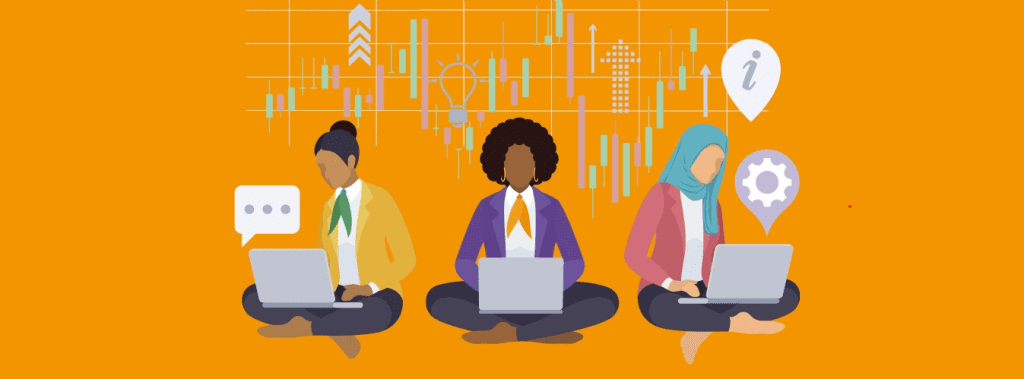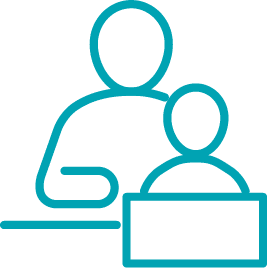Women and girls: get safe online now!

You are equal online
As a female, you may feel that even in the mid-2020s, you are at some kind of disadvantage when using the internet. You are not alone, because even though the internet is frequently celebrated as a force for greater equality and empowerment, women and girls around the world have daily concerns about going online, many founded on real lived personal experiences and those of others. These range from prejudice, sexism and misogyny to the various outcomes of breaches in privacy, to fraud and identity theft, all of which are made easier to the perpetrator because of the massive size of the internet and more recently, by using freely available AI tools.
This online gender inequality is highlighted by employment in the cybersecurity field, where women account for only two out of ten employees, despite representing almost half of the global workforce.
Equality when using the internet is a fundamental human right for women and girls. Our online safety experts have compiled some tips to help you use it with confidence and continue to take advantage of its many benefits. There is more advice than we have space to list here, so we’re suggesting you visit the most relevant web pages.
We should, of course, point out that males are equally at risk of encountering the issues discussed below.
Your top tips for enjoying a safe and confident online experience
Online Gender-Based Violence
This takes many forms, including sexual or other types of harassment, cyberstalking, fake news, body shaming, hateful content, doxxing and blackmail. There’s no way that females should have to feel inferior, intimidated or invaded, so don’t hesitate in blocking and reporting perpetrators. There are also multiple online resources you can turn to for help if you’ve been victimised. For more information, search ‘Online Gender-Based Violence’ on this website.
Your Personal Information Being Exploited
It’s said that you can find anything you want online. That could include your personal details, if you’ve overshared information via social media platforms, websites and even callers. Have you looked at your digital footprint recently? You may have shared personal information, opinions or images that could be invaluable to a fraudster, identity thief or an abuser … or even lead to physical violence. For more information and advice, search ‘Privacy’ and ‘Oversharing’ on this website.
Tech Abuse
Many abusers use everyday technology to control, harass or intimidate their victims. They may carry out physical, sexual, psychological, or economic abuse via hacking phone hacking, location settings, cyberstalking, tracking social media accounts, household cameras and other kinds of technology. Many women and girls experiencing tech abuse feel they have no choice but to stop using online spaces or their devices, making them feel even more isolated and helpless. For advice if you’re encountering this type of issue, visit www.refugetechsafety.org
Sexploitation and Revenge Porn
Sexploitation and revenge porn are unfortunately very commonplace, with females of all ages being targeted for reasons of spite, financial gain or self-gratification. If a perpetrator is even only slightly technically savvy, they can use a variety of ways to embarrass or humiliate you, which can cause considerable and even chronic trauma. There’s a lot of advice freely available online on how to avoid sexploitation and revenge porn and what to do if you’re victimised. Start by searching ‘Sexploitation’ and ‘Revenge Porn’ on this website.
Fraud
There are as many types of fraud as the things we do online, with scammers using everything from purchases to investments, banking to dating and holiday booking to job searching as shop windows for their activities. We have loads of advice on how to spot and deal with all of these. But a good way to pick up some back-to-basics tips is to visit ‘New to the Internet?’ on this website.
Report it!
If you feel as if you’ve been threatened, abused or discriminated against online, don’t hesitate to report it to the relevant website or platform and if appropriate, the police. This could help to prevent further issues for you and also to protect other women and girls.
#GSOSafeWomenOnline #GetTheWorldSafeOnline

Broadcasting Commission
Supported by the Broadcasting Commission

Safer children
Help your children stay safe online.
Online respect
When online, treat others as you'd like to be treated yourself.

Check a website
Determine whether a website is likely to be legitimate or a scam ... before you visit it.

New to the internet?
We'll help you stay online with safety and confidence.
Spot the AI
Is it real, or is it AI? See if you can spot the difference.
